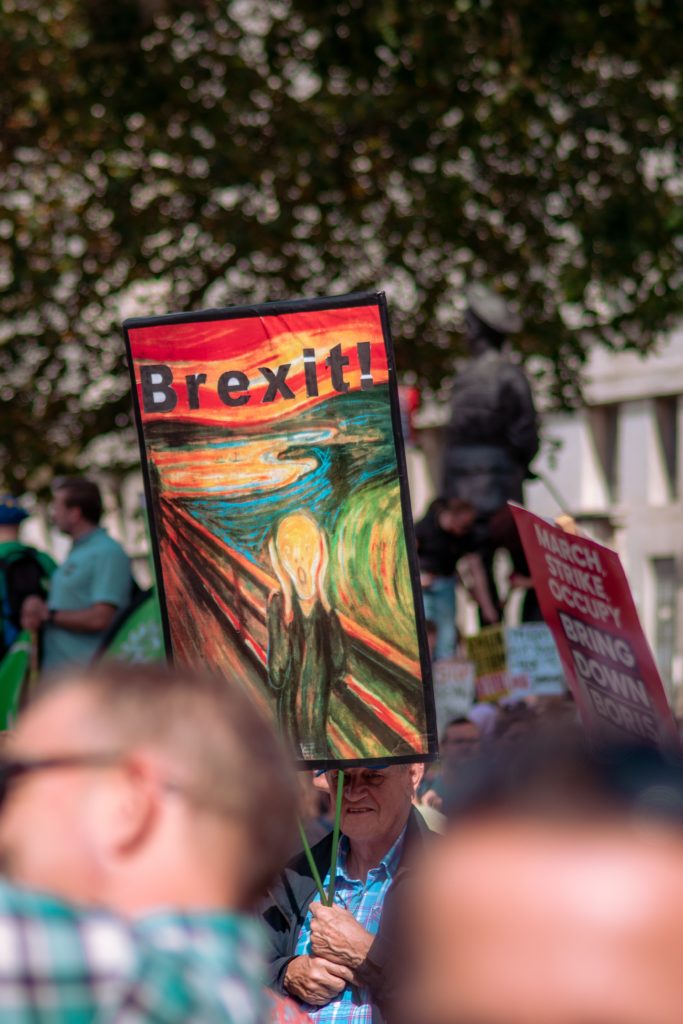writes Politics and International Relations student Alette Moller
*The views in the following article are the personal views of the author and are not an official position of the School.*
For some of us, Brexit is a word of the present which reminds us of an attitude of the past. An isolation which is suffocating in a multicultural world. For others, Brexit is a step into a greater sense of self and security. However you view it, Britain’s position on the international stage has shifted, and the government is looking to strengthen political ties outside of Europe.
A new era
It is now over five years since Britain voted to leave the EU, with Brexit being described by some as the ‘damp smell’ that Britain can endure but not ignore. Widely, moreover, Britain’s international reputation is regarded as being ‘in tatters’. A proud Briton, for example, should never ask Putin’s close ally Alexander Lukashenko what he thinks of this nation. His description of Britain as an ‘American lapdog’ is slightly less than flattering. According to Lukashenko, he hasn’t heard of the UK ‘for a thousand years’. However, it is important to look closely at what power Britain can muster away from the EU, and how effectively it can wield this.
Boris Johnson has been seeking economic and political ties outside of Europe, with the view of heightening Britain’s influence. More specifically, the Government aims to have trade agreements in place with countries accounting for 80% of Britain’s trade by 2023. From 2019 to 2021, trade agreements with over 60 countries outside the EU have been signed, and the UK’s request to join the CPTPP has been met with favour. The CPTPP is a free trade agreement between countries around the Pacific Rim. Yet, is this is all a bandage, perhaps, over the large crater that is the British economy’s predicted loss of $56 billion a year outside the EU, according to the European Commission?
Isolation: not an option
It is clear that a future outside of Europe comes with disadvantages, and it is hard not to take a negative stance on a post Brexit future. Regional power groups have become a way for nations to build significance and influence globally. Therefore, being that no country can reasonably stand in isolation, not only has the UK requested to join the CPTPP, but there is also momentum in London to strengthen the CANZUK Union, being the UK’s economic integration with Canada, Australia and New Zealand. However, the irony is such that Britain has left one regional power bloc in which it had influence, to join others within which it may have none. For example, in a deal agreed between the UK and Australia, the latter will likely receive an exports boost ‘six times greater’ than the UK.
No special relationship to fall back on
Another relationship that is important to examine is Britain’s relationship with America. Post Brexit, Britain looked cautiously over at the US, and pondered whether the special relationship might materialise. What has been clear for some time, however, is that the US, as a powerful democratic state, does not need Britain’s permission to act. As journalist Andrew Rawnsley highlighted in the Guardian, Britain chose to ‘estrange itself from the liberal democracies in its neighbourhood’, at the same time that US dependability was acutely waning. Notably, America’s withdrawal from Afghanistan reveals a ‘not so special relationship’ with Britain, as Biden paid no heed to what the UK thought. The cautious eye of Britain has not been satisfied, and an ‘all-weather friend’ is notably absent. Britain’s global interests appear to be at stake.
Covid, containers and complications
Not only does Britain face the reality of being subjected to power plays outside Europe, but must consider the reality of trading with nations further away. Brexit means a stronger reliance on container shipping for the UK, as it trades with nations outside of Europe.
Covid-19 revealed a structural vulnerability in global trade, and container shortages are a resulting symptom. Unfortunately, these container shortages and price hikes have coincided with a time when Britain needs to foster trade with countries further afield.
What next?
Political and economic ties in which Britain is the weaker partner may seem to be the future of UK politics. Despite this, Britain has the fourth highest number of unicorns in the world, being a new company which reaches the valuation of $1 billion or more. Britain also has some soft power, with about one in four countries worldwide possessing a head of state who has studied in the UK. There is the looming threat of such soft power fading, of course. Naturally, the illusion of taking back control and power through Brexit is proving to be futile in an interconnected world. Overall, therefore, when we look at Britain’s international relations post Brexit, we see the post-imperial nation continue on its decline, yet perhaps with more rapidity than was hoped.



Leave a Reply